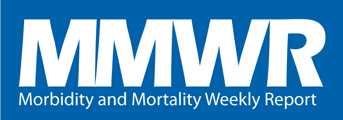MMWR News Synopsis for March 26, 2015
No MMWR telebriefing scheduled for
March 26, 2015
Chronic Obstructive Pulmonary Disease Employment and Activity Limitations — United States, 2013
CDC Media Relations
404-639-3286
COPD patients who smoke should be encouraged to quit and provided with the support they need to do so. All COPD patients might benefit from pulmonary rehabilitation and a personalized exercise regimen. Chronic obstructive pulmonary disease (COPD) is an important contributor to both mortality and disability in the United States. In this study, adults who reported having COPD were more likely than those without COPD to report being unable to work, activity limitation resulting from a health problem, difficulty walking or climbing stairs, and use of special equipment for health problems. Among adults with COPD, those who were physically inactive regardless of smoking status were most likely to report activity limitations. COPD patients who smoke should be encouraged to quit and provided with the support they need to do so, while all COPD patients might benefit from pulmonary rehabilitation and a personalized exercise regimen.
Mycoplasma pneumoniae Outbreak in a Long-Term Care Facility — Nebraska, 2014
CDC Media Relations
404-639-3286
Mycoplasma pneumoniae can cause outbreaks in long-term care facilities. During outbreaks, diagnostic evaluation and testing should be conducted to determine the outbreak cause so that the correct antibiotics are used and control measures can be implemented. In 2014, a Mycoplasma pneumoniae outbreak in a long-term care facility in Nebraska affected at least 55 people who lived at, worked at, or visited the facility. Twelve people were hospitalized, and seven died (although not all had laboratory testing to prove they had the illness). M. pneumoniae can cause a wide spectrum of illness, from mild respiratory disease to pneumonia. The disease is most commonly reported among persons less than 20 years old. Although pneumonia is a major cause of morbidity and mortality among older persons, M. pneumoniae outbreaks are not commonly reported in long-term care facilities. Certain antibiotics used to treat other types of pneumonia are ineffective against M. pneumoniae, so determining the outbreak cause was important for effective treatment.
Use of 9-Valent Human Papillomavirus (HPV) Vaccine: Updated HPV Vaccination Recommendations of the Advisory Committee on Immunization Practices
CDC Media Relations
404-639-3286
The Advisory Committee on Immunization Practices (ACIP) recommends the 9-valent human papillomavirus (HPV) vaccine (9vHPV; Gardasil 9) as one of three HPV vaccines that can be used for routine vaccination. 9vHPV, quadrivalent HPV vaccine (4vHPV), or bivalent HPV vaccine can be used for routine vaccination of females. 9vHPV or 4vHPV can be used for routine vaccination of males. This report summarizes evidence considered by the Advisory Committee on Immunization Practices (ACIP) in recommending the 9-valent human papillomavirus (HPV) vaccine (9vHPV) as one of three HPV vaccines that can be used for routine vaccination and provides recommendations for use. Similar to quadrivalent HPV vaccine (4vHPV), 9vHPV protects against HPV 6, 11, 16, and 18. In addition, 9vHPV protects against five additional types: HPV 31, 33, 45, 52, and 58. In the United States, approximately 64 percent of invasive HPV-associated cancers are attributable to HPV 16 or 18 and 10% are attributable to the five additional types in 9vHPV (14% for females; 4% for males; approximately 3,400 cases annually).
Updated Typhoid Vaccination Recommendations of the Advisory Committee on Immunization Practices
CDC Media Relations
404-639-3286
Travelers to countries where typhoid is common should be vaccinated against typhoid. Even travelers who are visiting friends or relatives or whose trips involve only short-term travel are at risk. These revised recommendations of the Advisory Committee on Immunization Practices (ACIP) for typhoid vaccination include updated information on available vaccines and on vaccine safety. No substantive changes have been made to previous ACIP typhoid vaccine recommendations apart from removing the discontinued parenteral whole-cell vaccine from the list of available typhoid vaccines. Typhoid vaccine continues to be recommended for US travelers to certain countries (the most recent guidelines can be found at www.cdc.gov/travel/), close contacts of chronic carriers, and certain laboratory workers. Travelers should be cautioned that typhoid vaccines provide only moderate protection and are not a substitute for careful attention to selecting safe foods and beverages.
###
- Page last reviewed: March 19, 2015
- Page last updated: March 19, 2015
- Content Source:



 ShareCompartir
ShareCompartir
